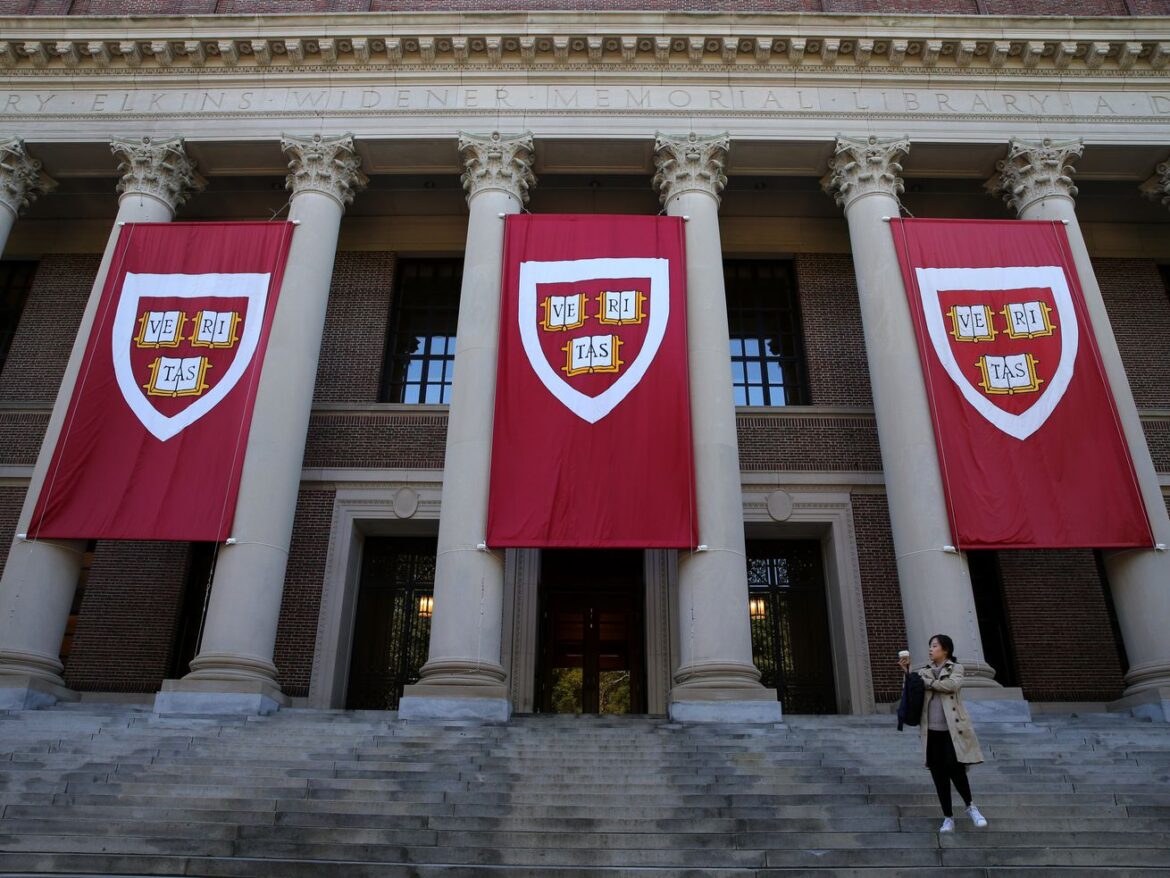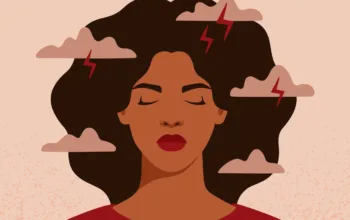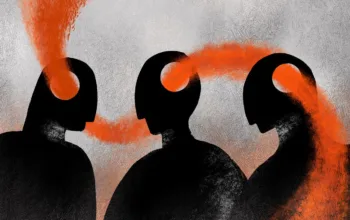The case for leaving some top college applications to chance.
April is the cruelest month — at least for the 54,995 applicants who discovered a couple of weeks ago that they will not be part of Harvard’s class of 2027, to which just 3.41 percent of applicants gained admission. The same goes for the 49,975 applicants who didn’t gain admission to Yale (acceptance rate: 4.35 percent), the 54,883 who missed out on Columbia (3.9 percent), and the 48,693 who won’t be going to Brown (5 percent).
Those raw numbers are a bit misleading, as some applicants were rejected during early decision periods last year, while a few applicants eventually make it in off the waitlist. But the reality is that admissions to America’s most elite colleges is more absurdly competitive than ever, with far too many qualified applicants jostling for the same tiny handful of spots.
That admissions process is coming under increasing scrutiny. The Supreme Court will soon rule on two connected cases — one involving Harvard — that could potentially ban the consideration of race as a factor in college admissions. At the same time, the financial cost and emotional stress of the elite college admissions race is increasingly seen as a significant factor in the adolescent mental health crisis. As Surgeon General Vivek Murthy told the Los Angeles Times recently, college admissions has young people “weighed down by tremendous pressure that is affecting their mental health and well-being.”
Add in the fact that, as the Varsity Blues scandal showed a few years ago, the elite admissions race isn’t just about who can craft the perfect application, but who has the means and the connections to sidestep the process altogether. According to a 2019 survey taken in the wake of Varsity Blues, fewer than 1 in 5 Americans think the college admissions process is “generally fair,” with 67 percent of respondents agreeing that the current system “favors the rich and powerful.”
But what if there were a way to sidestep all of this: the application insanity, the corruption of rich parents and the admissions industry, the injustice that no one quite knows why they get in and others don’t? What if, instead of maintaining the fiction that it’s possible for admissions departments to fairly choose from tens of thousands of great applicants, colleges rolled the dice? What if elite college admissions was a literal lottery, rather than the metaphorical one it is today?
The college lottery
Here’s how it might work: Selective colleges could set an academic cutoff point for applicants, like a minimum standardized test score/and or high school GPA. (One 2019 paper from the think tank New America that supports admissions lotteries suggests that schools could use an average of the 25th percentile of accepted students over the past three years.) Any applicant who made the cut would be entered into the lottery for free. And then the makeup of who actually receives, say, the 2,000 or so available spots for Harvard’s freshman class would be up to random chance.
That would mean no boost for children of alumni, an unfair and regressive practice still common at America’s top universities, albeit one coming under increasing criticism. It would mean no set-aside spots for recruited athletes, who tend to make up around 10 percent of the student body at a school like Harvard, including in sports that draw disproportionately from the wealthy, like sailing and fencing. It would mean no advantages for applicants who can pay for tutors who can help them craft the perfect application essay, or whose parents can afford to donate millions to the school.
Applicants would have to do well enough in high school and on tests to qualify for the lottery, but there would be no advantage to turning your high school years into a stress-filled, four-year college application grind. Applicants who made the cut for a lottery would truly be judged on more equal terms. There would be no black box admissions formula, no side deals, no advantages or disadvantages based on factors applicants can’t control, like the location of their hometown. Just equal random chance, transparently executed.
Taking the stress out of college applications
The idea of college lotteries isn’t a new one — the late Lani Guinier, a former professor at Harvard Law, raised the possibility in a New York Times op-ed on affirmative action in 1997. And versions of a lottery system are already being used in many charter schools, in New York City’s public magnet schools, and in some international universities.
But one of the biggest reasons to move to a lottery now is America’s unprecedented youth mental health crisis, and the growing evidence of the role played by the stress of scholastic competition for a limited number of elite college spots.
A 2021 paper zeroed in on a surprising paradox about youth mental health: While adults in rich countries tend to report higher levels of mental well-being than their counterparts in poorer countries, the opposite tends to be true among adolescents. A major reason seems to be the pressure of the college admissions rat race. As Derek Thompson wrote recently in the Atlantic, all things being equal, “the nation with higher test scores and more student competition will have more anxious and depressed teens.”
But if you reform the college admissions process such that there’s no longer any advantage to applicants piling on the AP classes and packing their calendars with extracurriculars, then hopefully much of that stress would disappear as well. Students might have the chance to actually enjoy high school, to choose subjects and pastimes that appeal to their own interests, not what some admissions dean in Cambridge or New Haven may or may not find worthy.
Lottery versus meritocracy
Of course, the very work that so many elite high school students put into their application process might make a lottery system seem the opposite of fair. If the Harvard application process really is the meritocracy it claims to be, why should a talented applicant who puts in extraordinary amounts of work have the same chance of admission in a lottery as one who just barely passes the cutoff?
The current system may be no better at distinguishing between students. For one thing, as elite colleges themselves admit, they receive far more highly qualified applicants than they have room to accept. Thanks to the lawsuit against Harvard that the Supreme Court will rule on soon, we know that in 2017, “more than 8,000 domestic applicants had perfect GPAs; more than 3,400 applicants had perfect SAT math scores; and more than 2,700 applicants had perfect SAT verbal scores” — many more than the 2,000 or so spots Harvard can offer.
In reality, the distinctions among those thousands of highly qualified applicants are so fine that unless admissions officers truly can predict the future, an element of chance is already built into the system. The difference is that a lottery makes that element transparent to all, while eliminating many of the subjective biases that can creep into the admissions process.
A more substantial objection is that a lottery system, depending on how it’s implemented, could damage efforts to further diversify elite colleges. In a study published last year, researchers ran 1,000 simulations of lottery systems for selective schools, and found that enrollment of Black and Hispanic students would likely dip significantly depending on the test score cutoff, while enrollment of male students could drop by as much as a third if GPA alone were the cutoff.
Those findings are a reminder that, given historical and existing discrimination, no admissions system can be perfectly fair, as no two students start with precisely the same advantages and disadvantages. But as the Harvard political philosopher Michael Sandel wrote in his 2021 book The Tyranny of Merit, colleges could make provisions for diversity of all kinds — racial, gender, and class — in the lottery system.
The downside of a diversity-weighted lottery is that its legality would be unclear, especially if the Supreme Court strikes down the use of race in college admissions, though similar effects might be achieved by focusing on class instead, a category where elite schools of all kinds have consistently fallen short. (It’s also worth remembering, as we debate admissions policies at top schools, that these universities only educate a tiny fraction of American students. The great majority of US colleges admit most students who apply, and as the college-age population shrinks in the years ahead, acceptance rates will probably rise.)
Most of all, though, a lottery system for the most prized places in higher education would underscore a basic, if often ignored, fact about American life: Chance rules us all. It’s chance that decides the kind of family we’re born into, chance that decides where we grow up, chance that decides the scope of much that we can achieve.
After all, the 1,942 students admitted into Harvard’s class of 2027 are many things, but they all have this in common: They’re lucky.
A version of this story was initially published in the Future Perfect newsletter. Sign up here to subscribe!



